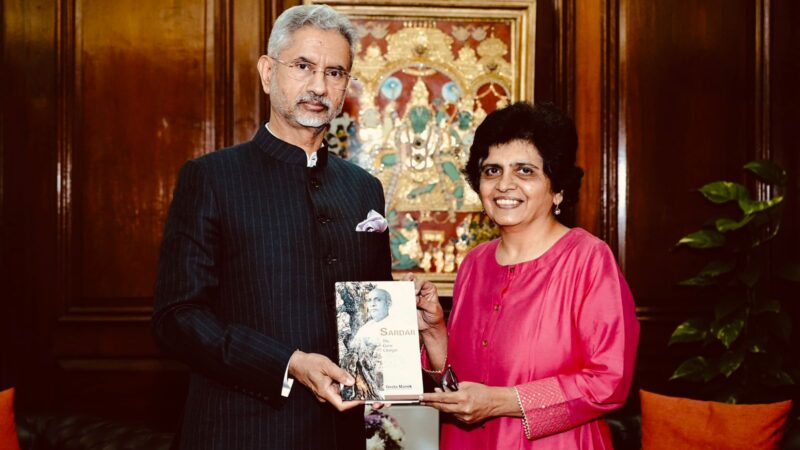Royal Swedish Academy Not Following Academic Norms !
Alfred wished impartiality for Nobel.
Royal Swedish Academy violating Academic Norms in the case of Professor Mrinal Thakur!!
NEW DELHI, August 6, 2018: Professor Mrinal Thakur, Director of the Photonic Materials Research Laboratory, Auburn University, AL (USA) stated in a press conference that The Royal Swedish Academy is in violation of academic norms considering the following issues which are yet to be resolved.
The 2000 Nobel Prize in chemistry was awarded for the discovery of Conductive Polymers. However, the Royal Swedish Academy of Sciences awarded the prize only to those who discovered “Conjugated” conductive polymers and failed to give credit to Professor Thakur for his discovery of “Nonconjugated” conductive polymers which was first reported back in 1988.

The document preserved at the Nobel Foundation website for the 2000 Nobel Prize in chemistry is fundamentally incorrect. Alan Heeger, A.G. MacDiarmid and H. Shirakawa, recipients of the Nobel Prize for chemistry in 2000, made fundamentally incorrect (nonfactual) statements in their Nobel document that only conjugated polymers can be electrically conductive.
Legal communications involving US attorneys have established that these Nobel recipients have agreed at the scientific and legal-level that Professor Thakur’s experimental works and theory are fundamentally correct while theirs are fundamentally incorrect!
However, the following four critical issues have remained unaddressed:
#1) No credit was given to Professor Thakur in 2000 Nobel Prize and afterwards for his discovery of “Nonconjugated Conductive
Polymers” although the Nobel Prize was awarded for the discovery of “Conductive Polymers”. The fundamental theoretical basis of conductive polymers as provided by Professor Thakur (1988) has been proven and accepted to be correct while that given by the Nobel recipients was proven incorrect.
#2) The Royal Swedish Academy still has not made the requisite
correction in the document preserved at the Nobel Foundation website despite repeated requests. The document states that a polymer must be conjugated to be electrically conductive – which is nonfactual and the corresponding theory as given is incorrect.
#3) Professor Thakur’s research funding was abruptly stopped as he brought up the incorrectness and inequity regarding the 2000 Nobel Prize in Chemistry. The funding has remained stopped for the past 15 years since 2003.
#4) Professor Thakur stakes claim to the 2014 Nobel Prize in Chemistry as well since “Super-resolved Fluorescence Microscopy” (2014 Nobel in Chemistry) is primarily based on earlier nonlinear optical experimental and theoretical studies performed by Professor Thakur and colleagues on organic materials (published in Applied Physics Letters, Physical Review Letters, MRS Proceedings, Macromolecules, Optics Letters etc. on 1985 and onwards).
Read Now: IN 86 YEARS, ONLY ONE “INDIAN” SCIENTIST GETS NOBEL PRIZE
Professor Thakur’s works were published at least ten years prior to those of the 2014 Nobel recipients.

The first two issues relate to technical correctness and providing due credit – which is at the heart of our entire educational system. In higher education, at Universities, the Academic Honesty and Grievance Committees play a central role in providing assistance to the University President / Chancellor / Vice-Chancellor to promptly resolve such issues.
The third issue – the research funding for the individual who came up with the correct scientific idea has been stopped, goes against rational thinking and human rights. Regarding the fourth issue, according to the statutes the Nobel Prize should be given to recognize the earliest and most original works in a given field.
That was not followed in the decision of the 2014 Nobel Prize in Chemistry. Multiple times Professor Thakur sought assistance of the Prime Minister of India, President of the United States and the Prime Minister of Sweden to resolve these critical issues – but nothing fruitful has transpired as yet!!!
Professor Thakur’s scientific works have been accepted by the entire gamut of polymer scientists and his discoveries have appeared in many major scientific journals in USA and outside. He has hundreds of research publications. His research has made wide impact in polymer science as well as in the research fields of nonlinear optics and nano-particles.
Professor Thakur, nominated for the Nobel Prize, discussed a wide range of applications of non-conjugated conductive polymers he invented. A major application involves protection against nuclear radiation including radioactive iodine.
These polymers efficiently absorb iodine when iodine atoms come in contact with them rendering the iodine atoms immobile. These protective plastics should be installed as a layer/sheet all around any nuclear reactor or nuclear waste storage facility so that any emitted radioactive iodine is absorbed within the plastic and can not leak out to the environment.
Among radioactive species emitted by nuclear reactors, radioactive iodine is particularly dangerous since it remains as a vapor at ordinary temperature and can travel long distances by air-currents. Radioactive iodine emitted from Fukushima plants, Japan, crossed the Pacific Ocean to arrive at California, USA and has been reported to have caused health hazards!
Radioactive iodine is readily absorbed by human body and causes thyroid cancer and other serious ailments. In hospitals and clinics, the doctors, nurses and attendees are often worried of being exposed to radioactive iodine during and after radio-iodine therapy of patients having thyroid cancer and hyperthyroidism. Patients emit radiation for a number of days after taking a capsule containing radioiodine.
Use of apparels made of the nonconjugated conductive polymers reduces the potential exposure to radioiodine and lessens the anxiety. Thyroid cancer cases in USA have tripled in the last three decades (NBC news, August 2016) probably because of the large number of nuclear reactors (about 100 of those) in USA.

His discovery of these protective shields is expected to make profound impact by making the planet/ mother earth safer as its applications can safeguard the living beings/environment against radioiodine emission caused by nuclear power plants, nuclear spent-fuel-rods, rocket/space satellite launching stations, other nuclear reactors as in nuclear-powered ships/submarines, nuclear fallouts, as well as in administering nuclear medicine.
Professor Thakur is hopeful that these press conferences will help gaining world-attention to this important matter and for the resolution of the critical issues.





